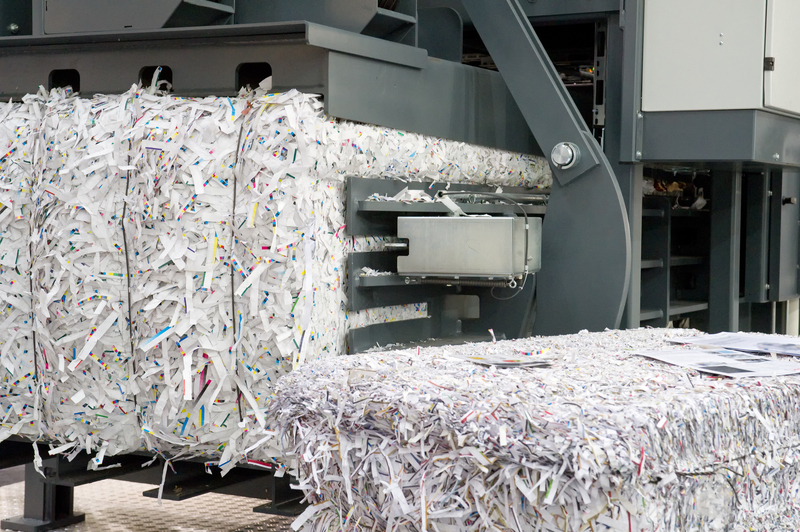Strategies for a Waste-Free Household: The Ultimate Guide to Sustainable Living
Are you ready to transform your home into a haven of sustainability? Adopting a waste-free household isn't just a trend--it's an impactful lifestyle that helps protect the planet, saves money, and introduces simple joys into daily life.
In this comprehensive article, we'll uncover the best strategies for a waste-free home, delve into practical tips, and explore eco-friendly habits that minimize waste and maximize resourcefulness. Whether you're a beginner eager to start your zero waste journey or a seasoned environmentalist seeking fresh inspiration, read on for valuable insights that will empower you to embrace a greener, cleaner future.
Understanding the Waste-Free Lifestyle
A waste-free household revolves around the core idea of sending little to no waste to landfills or incinerators. Instead, the focus is on reducing, reusing, recycling, and composting. This lifestyle not only diminishes our environmental impact but also fosters a deeper connection with our consumption choices.
Why Aim for a Waste-Free Household?
- Environmental Preservation: Cutting down on waste conserves natural resources and reduces pollution.
- Financial Savings: Consuming less and reusing more can significantly lower household expenses.
- Healthier Living: Avoiding packaged and processed goods encourages a healthier, more mindful lifestyle.
- Community Impact: Inspiring others with your waste-free practices can stimulate wider change in your community.

1. Mindful Consumption: The First Step to a Zero Waste Home
Before focusing on managing waste, it's essential to prevent waste from entering your household in the first place. Here's how to practice mindful consumption:
Plan Purchases Wisely
- Make shopping lists and stick to them to avoid impulse buying.
- Buy in bulk to minimize packaging waste.
- Support local farmers and businesses for fresh, package-free products.
Consider Quality Over Quantity
- Invest in durable, long-lasting items rather than disposable alternatives.
- Choose products with minimal or recyclable packaging.
Practice the 'Refuse' Principle
Say no to free promotional items, single-use plastics, and unnecessary packaging to prevent clutter and landfill waste at its source.
2. Reusable Products: The Core of Waste-Free Living
Adopting reusable items is perhaps the most transformative step toward achieving a zero waste household. Here are some must-have swaps:
Kitchen Essentials
- Cloth napkins and towels: Replace paper towels with washable cloth alternatives.
- Glass jars and containers: Store pantry staples and leftovers in reusable glass or stainless steel.
- Beeswax wraps: Eliminate plastic wrap with sustainable food covers.
- Reusable coffee filters and tea strainers: Cut down on single-use filters and tea bags.
Bathroom Swaps
- Switch to bamboo toothbrushes and refillable toothpaste tablets.
- Use bar soap, shampoo bars, and reusable razors.
- Choose washable cloths instead of disposable makeup wipes or cotton pads.
Shopping Solutions
- Always bring reusable tote bags and produce sacks for groceries.
- Shop at bulk stores using your own containers.
3. Composting: The Secret to Reducing Organic Waste
Food scraps and yard waste make up a significant portion of household garbage. Composting transforms these into fertile soil for your garden and keeps them out of landfills, where they generate methane--a potent greenhouse gas.
How to Start Composting at Home
- Choose a suitable compost system: For apartments, try a vermicomposting bin; for larger homes, a backyard compost pile or tumbler works well.
- Know what to compost: Fruit and vegetable scraps, coffee grounds, eggshells, and yard waste are all safe. Avoid meat, dairy, and oily foods in most home compost systems.
- Maintain the balance: Alternate between 'green' materials (scraps, grass) and 'brown' materials (leaves, paper) for optimal decomposition.
Benefits of Composting
- Reduces the volume of trash sent to landfill.
- Creates nutrient-rich soil for plants and gardens.
- Decreases the need for chemical fertilizers.
4. Recycling: An Integral, Yet Last Resort
While recycling is crucial in a waste-free lifestyle, it should be seen as a backup after reducing and reusing. Only recycle materials that cannot be used again.
Recycling Best Practices for a Waste-Free Household
- Rinse containers before recycling to avoid contamination.
- Learn your local recycling rules--each municipality has different guidelines.
- Recycle responsibly--avoid wish-cycling (putting non-recyclable items in the bin and hoping for the best).
5. Repair, Repurpose, and Upcycle
Give new life to household items before relegating them to the bin. Adopting a culture of repair and upcycling is a creative way to maintain a zero waste home.
Easy Ideas to Get Started
- Patch clothes and mend shoes rather than discarding them.
- Turn old jars into vases or storage containers.
- Repurpose worn-out linens into cleaning rags.
- Upcycle cardboard boxes into organizers or craft projects for children.
6. Smart Meal Planning and Food Storage
Food waste is a significant challenge for households globally. Smart shopping and storage strategies can drastically reduce the amount of food that gets thrown away.
Meal Prep Like a Pro
- Plan meals for the week: Helps use ingredients efficiently and avoid overbuying.
- Use leftovers creatively: Transform yesterday's dinner into today's lunch or a new dish.
- Store food properly: Keep produce fresher longer with proper techniques (e.g., wrapping leafy greens, storing veggies in moisture-controlled bins).
7. Eco-Friendly Personal and Household Care
From cleaning agents to personal care products, the average home is full of waste-prone items. Here's how to keep your household hygienic and waste-free:
DIY Cleaning Solutions
- Make all-purpose cleaners from vinegar, baking soda, and citrus peels.
- Use refill stations or buy concentrated cleaning products in bulk.
- Opt for reusable cleaning tools such as sponges, cloths, and brushes.
Personal Care Without the Waste
- Choose bar soaps and shampoos in compostable packaging.
- Make your own toothpaste and deodorants.
- Use menstrual cups or washable pads instead of disposables.
8. Conscious Waste Disposal: Donate and Share
- Donate clothing, appliances, and books to charities or second-hand stores.
- Use community sharing programs, such as Buy Nothing groups, to pass on gently used items.
- Organize swaps or garage sales to extend the life of possessions.
Electronic Waste Solutions
- Drop off broken electronics at certified e-waste recyclers.
- Repurpose or donate old devices when possible.
9. Educate and Involve Your Household
Waste-free living is easier and more enjoyable when everyone participates. Get your family and housemates involved by:
- Holding regular meetings to discuss strategies and progress.
- Assigning roles--such as compost captain, thrift shopper, or kitchen steward.
- Celebrating zero waste milestones together.
Teaching Kids Sustainability
- Engage children with fun upcycling crafts and waste-reduction games.
- Explain the impact of daily choices on nature in simple, relatable terms.
10. Continue Learning and Connecting
The journey toward a sustainable, waste-free household is ongoing. Stay inspired by:
- Following waste-free influencers and blogs for fresh ideas.
- Joining local zero waste or environmental groups.
- Attending workshops, webinars, and community clean-up events.
The Benefits of a Waste-Free Household
- Cost Savings: Less waste means less money spent on disposable products and more reusable investments.
- Reduced Environmental Footprint: By sending less to landfills and supporting recycling and composting efforts, you are actively protecting Earth's resources.
- Empowerment: Knowing you are making a tangible difference fosters a sense of achievement and well-being.

Common Challenges and How to Overcome Them
Adopting a zero waste lifestyle isn't without its hurdles. Here's how to tackle some common obstacles:
- It feels overwhelming: Start small; swap one disposable item at a time and celebrate each success.
- Lack of convenient options: Seek out local bulk stores, farmers markets, and thrift shops. Advocate for better options in your community.
- Family resistance: Educate gently, involve your family in decision making, and focus on the positive impact together.
- Forgetfulness: Keep reusable bags and containers by the door or in your car so you never leave home without them.
Conclusion: Transform Your Life with Waste-Free Strategies
Embracing a waste-free household is a rewarding journey filled with discovery, growth, and positive impact on your well-being and the environment.
By integrating these strategies for a waste-free household--from mindful consumption and reusable products to composting and community involvement--you're not only reducing landfill waste, but also cultivating a more intentional and fulfilling way of living. Remember, every small change contributes to a healthier planet and a brighter future.
Start your zero waste journey today. Take one step, then another, and watch your home transform into a model of sustainability!